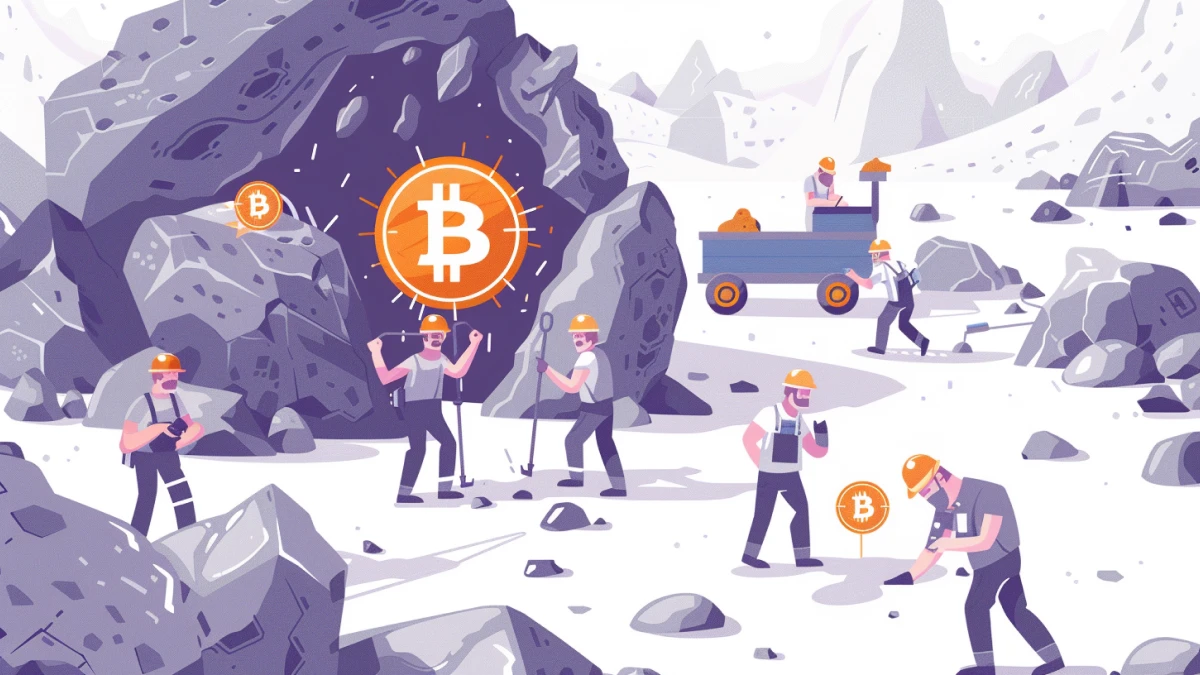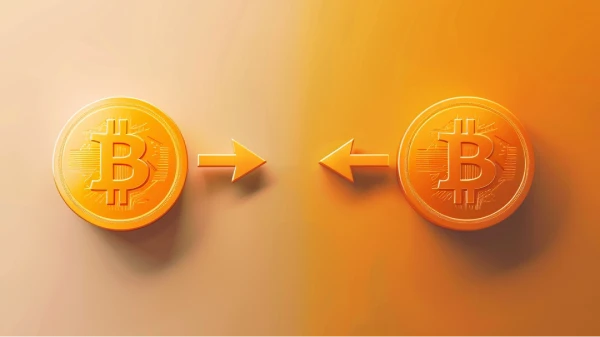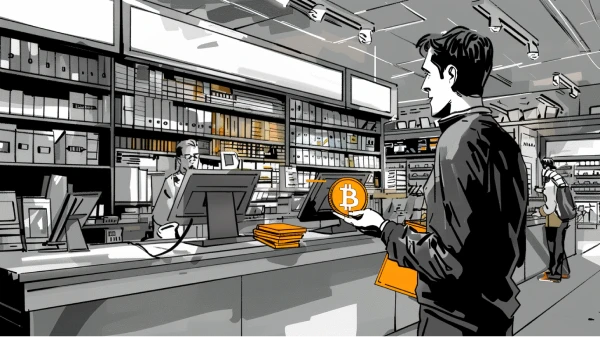The Role of Bitcoin Miners
Mining is one of the two core components that secure the Bitcoin blockchain. In a simple way, it can be looked at as the process that actually builds the blockchain by discovering new blocks and joining them to the previous ones. The other component is the nodes that keep track of the history of all transactions and verify new transactions.
➤ Learn more about Bitcoin mining.
Since miners process transactions, it would be straightforward to assume that they can decide which transactions make it into the blockchain or not, and act as new middlemen. In practice, it is difficult for miners to set or change any rules, or to prevent transactions from being added to the blockchain.
There is always someone willing to mine Bitcoin according to the rules of the network, and always someone willing to process transactions that an individual miner or pool may not want to add to the blockchain. As a result, the actual role of a miner isn’t to decide which transactions get processed, but to set the order in which transactions are added to the blockchain, so that each node in the network can maintain an identical order.
Bitcoin Miner Nodes
The Bitcoin network consists of nodes run by individuals, miners, businesses and developers. All of these nodes run software that keeps them compatible, so they all agree on an identical version of the blockchain. If nodes ran different software with incompatible rulesets, then one node could have a transaction in its copy of the blockchain that another node would consider invalid. As a result, a node may be unable to participate in the network, or if this happens at a large scale, the network could split.
➤ Learn more about Bitcoin nodes.
Miners run important nodes in the Bitcoin network. Their nodes are the first ones to broadcast new blocks to the network to get them verified and added to each copy of the blockchain. Without miners in the network, no transactions would get added to the blockchain. Let’s look at what happens if miners would try to abuse this position.
Can Bitcoin Miners Change Bitcoin’s Rules?
There are two factors that disincentivize miners from taking control of the rules:
1. The difficulty adjustment
If miners were to change the rules on their nodes, they would create a fork in the network. The network maintained by those who don’t agree to these different rules would temporarily slow down, as it would have fewer miners supporting it who can create new blocks.
A difficulty adjustment takes place once every 2,016 blocks or approximately every 14 days, at which point an algorithm rebalances the difficulty of adding new blocks to the blockchain. This is when the software would account for a decrease in mining power in the network, and make it easier to create new blocks so that one would still be created every 10 minutes on average. After this adjustment, new miners would get started, due to a higher profitability to mine bitcoin.
2. A miner’s business success is tied to Bitcoin’s success
If miners try to take control or hold the network hostage, they undermine people’s faith in Bitcoin. Many users may end up selling their bitcoin out of fear, while some developers may start working on changes to the software that would make existing mining machines very inefficient at creating new blocks. Both of these form catastrophic financial risks for any mining business. As a result, miners have no choice but to collaborate with users, developers and businesses if they want to introduce any changes to bitcoin’s rules.
Unless the economic majority of users agrees to a change, miners would risk mining new blocks on a split off network, known as a contentious fork. If the economic majority never moves over to that fork, then miners risk losing all of the energy they are spending for their operation.
Have Miners Ever Tried to Change Bitcoin’s Rules?
In 2017, miners banded together to block a change in Bitcoin’s rules known as SegWit (Segregated Witness). SegWit was a stepping stone to help Bitcoin’s transaction throughput scale on additional layers, such as the Lightning Network. Miners feared this change would move a portion of future transaction fees off the blockchain, and therefore, attempted to block the change.
Ultimately, users ended up pushing through the desired changes by activating the new rules through their collective nodes, and putting pressure on businesses they made use of to support the change. To protect their business model, miners had to concede and align with the economic majority, or risk being made obsolete.
What Damage Can Bitcoin Miners Do to Bitcoin?
As mentioned above, it is not in a miner’s best interest to try to do things that would harm Bitcoin’s smooth operations. With that said, in theory, miners can do several things that would disrupt the network. We’ve written them in order of how likely we believe they are to occur.
Mining Empty Blocks Without Transactions
For compensation, a miner would simply take the block reward and forfeit the additional revenue from transaction fees. This would cause inconvenience for users and businesses by slowing down the time to get transactions confirmed.
Bitcoin does sometimes have empty blocks in its blockchain, but this is mostly for technical reasons explained in this research, and not as an intentional action by miners.
Set a Higher Minimum Transaction Fee
This would have a similar effect to mining empty blocks. If some miners set a higher transaction fee, it would slow down the confirmation of transactions, as those who paid less than this fee would have to wait for other miners to be the first to create a block and include their transaction.
If many miners were to set higher minimum fees, then it would create an incentive for new ones to come in and process these transactions anyway. The miners that process transactions with lower fees would also earn more revenue, and thus over time gain a larger share of the mining power. This would potentially push miners who are enforcing a high minimum out of businesses.
Choose to not Process Certain Transactions
To understand how it would be harmful, the first question to ask here is why would a miner do this?
1. To Delay a “Competitor”
A miner might monitor the blockchain for activity from certain addresses. Their motivation may be to insert their own transaction instead of the competitor for some financial gain, such as selling before they do. This is a complex and speculative process. The operator of a specific mining pool would need to both find and act on such an opportunity, as well as have their pool be the first to find the next block. If a different mining pool were to find the next block, they could still include the transaction that the other pool operator was trying to be a step ahead of.
2. To Censor Transactions at the Blockchain Level
There can be various reasons why a miner would censor transactions. These could be of a competitive, business nature, such as slowing down deposits and withdrawals to a certain business. Or they could be enforced by a government, pressuring a mining pool operator to censor transactions to specific services, fundraisers, individuals, or related to illicit activity.
It would be difficult for miners to avoid processing certain transactions. Even if an individual miner would not process them, another miner around the world without access to the same information, or to whom different laws apply, might process the transaction anyways. Illicit activity is typically monitored by the on- and off-ramps, such as exchanges and brokerages. These platforms must be compliant and maintain KYC/AML procedures.
Try to Double Spend a Transaction
If a miner or group of miners had the majority of the computer power in the Bitcoin network, they could try to spend a transaction, then go back briefly in time, build a new version of the blockchain before this transaction happened and then spend the money again.
A double spend has never been confirmed to happen and would fundamentally undermine the security of the Bitcoin network. It would be near impossible to make such an attack profitable, as the reward would need to outweigh the cost to outpace the blockchain built by the rest of the network.
–
Miners play an important role in the Bitcoin network by finding blocks and defining the order of transactions in them. It’s easy to misinterpret them as gatekeepers that have the majority of influence over the system and the ability to change the rules. In reality, their opinion is valued, but there is little they can change about Bitcoin’s rules without the rest of the network agreeing.
Key Takeaways
- Bitcoin miners cannot change the rules of the Bitcoin protocol without risking a split in the network. The “economic majority” of the network must agree, which includes businesses, developers and users.
- Individual miners or pools can take actions that disrupt part of the network operations, but this could hurt Bitcoin’s credibility and thus their revenue.
- There are a few examples of situations where miners tried to use their influence, none of which changed how Bitcoin works.


